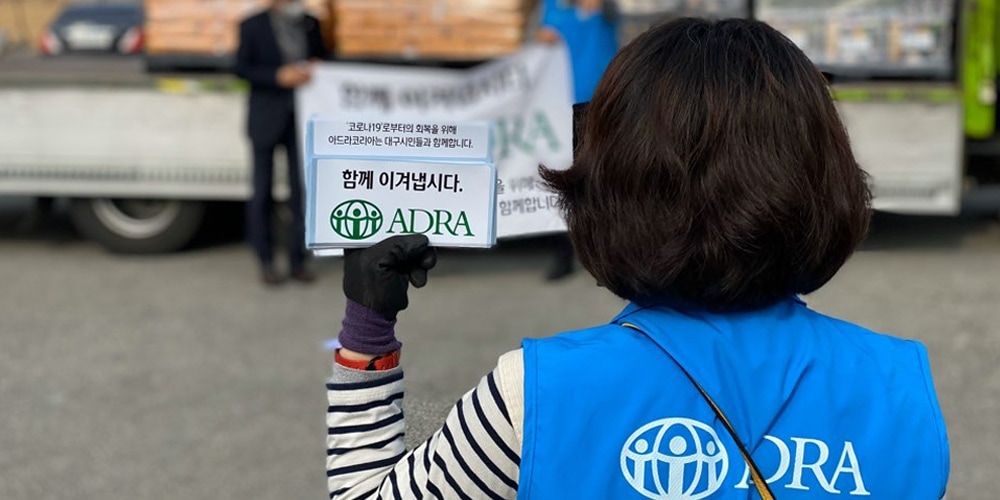
South Korea has confirmed more than 8,400 COVID-19 cases and 84 deaths as of March 18, but the pace of new infections reportedly shows signs of slowing. Local authorities are managing the situation and trying hard to contain and quarantine known cases conducting about 15,000 tests daily. Medical workers clothed in protective gear and wearing face masks have been working around the clock at drive-through centers, swabbing people’s mouths and throats for testing.
“Some local authorities are trying to procure any noncontact infrared forehead thermometers to prevent any spread of the coronavirus in public areas. On top of that, the government has begun regulating the use of face masks by selling them,” says Jong-Min Lim, country director for the Adventist Development and Relief Agency (ADRA) in South Korea. “People can buy up to two masks per person each week. Under the five-day rotation system, the day for buying masks is determined by the last digit of a person’s birth year.” The regulation comes as mortality rates have decreased, but precautions remain to contain further outbreak.
ADRA is currently serving in Bonghwa, Chungdo, Daegu, Andong, Ui-seong, Yeong-cheon, and Pohan in Gyeongbuk province to assess immediate needs.
“Most people do not want food,” Lim discovers. “Instead, ADRA will provide them with cash vouchers, which will help people who have been displaced from their job as a result of the pandemic to buy necessary items for them and their families.” Lim adds that studies show using cash helps families, especially the most vulnerable and low-income households, make ends meet during times of crisis.
In the Bonghwa and Chungdo provinces, ADRA has prepared and donated 500 food kits to treatment facilities and delivered 300 food kits to Gyeongsan city for vulnerable families.
“To ensure safety among our team, we are working with the Korean Union Conference’s (KUC) Health Department to monitor the body temperature of our staff,” says Lim. “As emergency responders, we have to ensure that our health is intact so we can continue working to provide aid.”
Lim says that the Adventist Community Services in the Daegu and Kyeong-buk regions, which reportedly have the most confirmed COVID-19 cases in the country, have been distributing hand sanitizers produced by the Adventist Church. “They have been offering bottles of hand sanitizers to people in the streets, retail shops, and homes,” he adds.
“Staff from KUC, ADRA, and local conferences and churches all pitched in to also donate blood,” says Lim, as there has been an increased need for blood donations.
South Korea overall has seen a decrease in tourism since the start of the outbreak. Reports are that the novel coronavirus has also made an impact on exports, industries and companies, aviation, and retailers. The beginning of the spring semester for kindergarten, elementary, middle, and high schools has also been postponed twice. In the meantime, the Korean Education Ministry plans to provide digital textbooks and offer online classes to avoid gaps with continuing education.
The original version of this story was posted on the ADRA site.